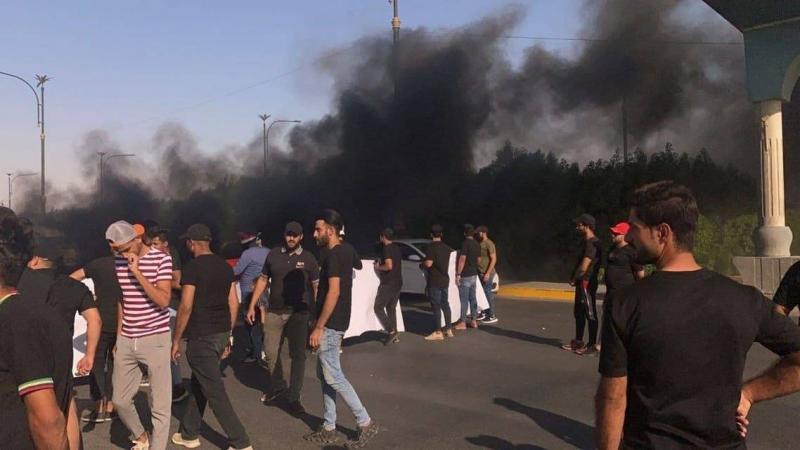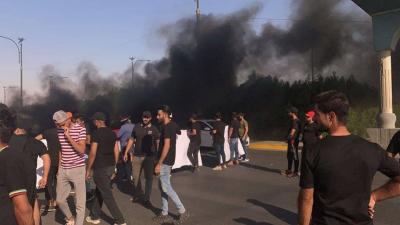In recent days, the rhetoric of threats and warnings from Iran-aligned factions has intensified in response to the results of the parliamentary elections. The apparent goals seem to revolve around securing a position in power through the "largest bloc" that will form the government, ensuring the interests of that faction despite a clear decline.
Some areas have witnessed protests from members of these factions and parties opposing the announcement of the final results by the Electoral Commission, particularly their discontent with the manual counting matching the electronic results. The most prominent dissenters are clearly represented in a statement from what is known as the Coordination Framework, composed of several alliances, including: the "Al-Fateh Alliance" led by Hadi al-Amiri, the "State Forces Alliance" led by Haider al-Abadi, and the "State of Law Coalition" led by Nuri al-Maliki. These Tehran-aligned parties received a severe blow, as their parliamentary seats dropped to nearly half compared to 2018, thus they have been persistently threatening to take to the streets.
Commenting on these threats and whether they are likely to escalate beyond protest, Ahmed Al-Yasiri, head of the Arab Australian Center for Studies, stated that it depends on the process of forming the largest bloc and subsequently the government. He added in a statement to Al-Arabiya.net that the direction of the largest bloc and the government in the coming days concerning the Popular Mobilization Forces could determine the frameworks of any potential confrontation; a strict stance would inevitably lead to confrontation, while a settlement approach could defuse any potential conflict in the Iraqi arena.
Moreover, he believed that the protests from those rejecting the election results aim to protect their arms, as the successful blocs threaten Iranian existence in Iraq. Researcher and political science professor Muhannad Al-Jinabi told Al-Arabiya.net that the losing forces contesting the election results and demanding a manual recount are violating the law.
He noted that the Al-Fateh Alliance, which has previously accused others of stealing votes and threatened public order, is only seeking to control what is known as the largest bloc to form the government. He also claimed that the "Coordination Framework" and its armed factions are under the management of a single conductor, namely Nuri al-Maliki, who aims to form the largest bloc.
On escalating threats, he ruled out a military option to resolve the ongoing conflict in the country but anticipated an increase in political disputes, threats of using arms, and media escalation. He also pointed out the possibility of utilizing and mobilizing the street to push for a settlement that would return the issue of forming the largest bloc to the Iranian-aligned factions.
For his part, writer and Iraqi affairs researcher Ali Al-Baider told Al-Arabiya.net that those objecting to the results are threatening to use arms as leverage to ensure their presence in power. He indicated that these groups might resort to arms if they do not receive guarantees for their return to power. Furthermore, he confirmed that the only opposition to the election results comes from armed factions loyal to Iranian interests.
It is noteworthy that the Sadrist movement, led by Muqtada al-Sadr, holds a strong leverage in the matter of the "largest bloc" and government formation, as well as choosing the Prime Minister following the gains it made in the elections. However, it still needs to reach an agreement with other political forces. Al-Sadr topped the results with more than 70 seats out of 329, according to the announcements from the Electoral Commission. Nevertheless, many observers still see it as unlikely for him to single-handedly choose the Prime Minister.




